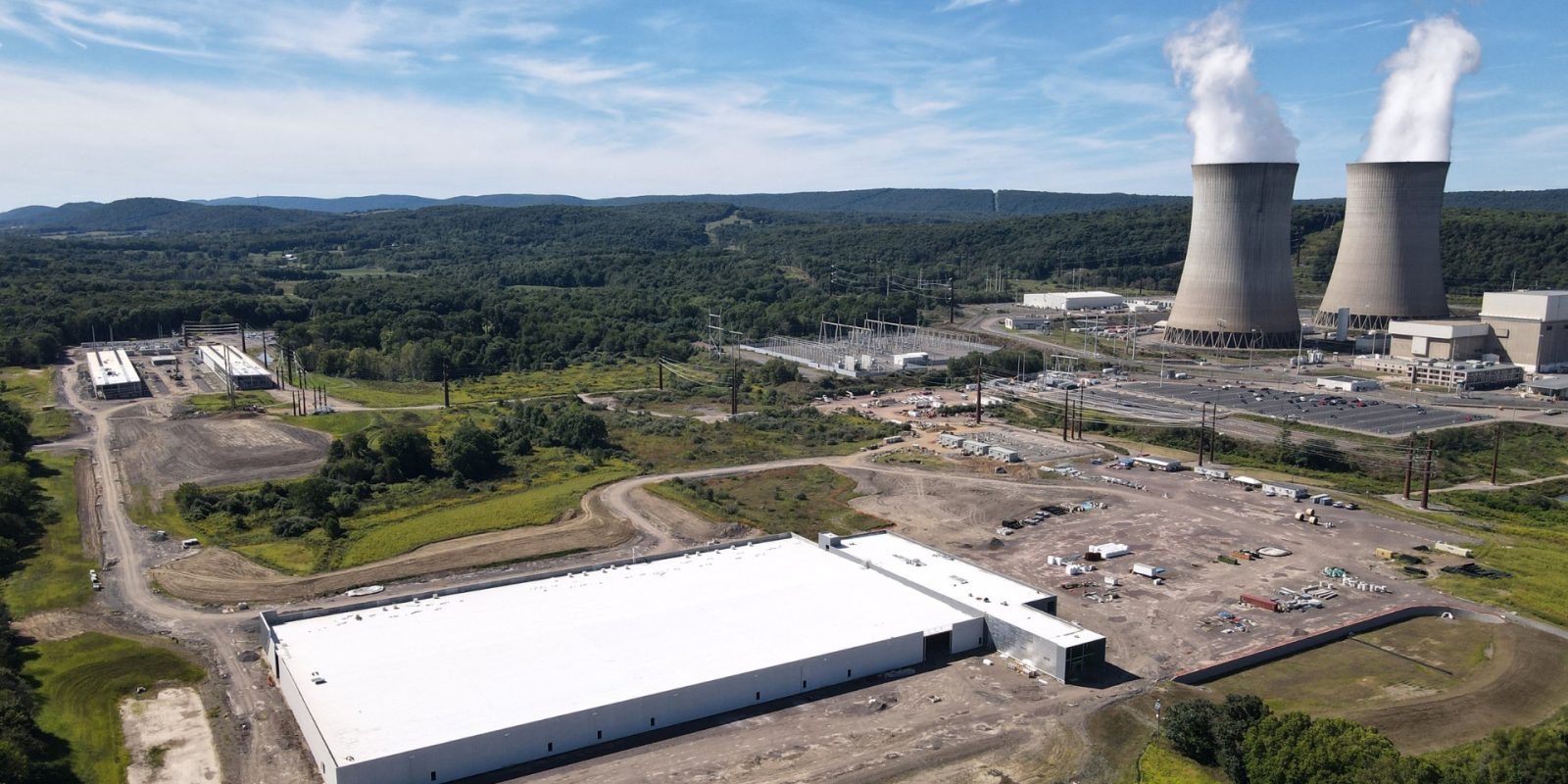
One of the US’s largest nuclear power plants will directly power cloud service provider Amazon Web Services’ new data center.
Power provider Talen Energy sold its data center campus, Cumulus Data Assets, to Amazon Web Services for $650 million. Amazon will develop an up to 960-megawatt (MW) data center at the Salem Township site in Luzerne County, Pennsylvania.
The 1,200-acre campus is directly powered by an adjacent 2.5 gigawatt (GW) nuclear power station also owned by Talen Energy.
The 1,075-acre Susquehanna Steam Electric Station is the sixth-largest nuclear power plant in the US. It’s been online since 1983 and produces 63 million kilowatt hours per day. The plant has two General Electric boiling water reactors within a Mark II containment building that are licensed through 2042 and 2044.
According to Talen Energy’s investor presentation, it will supply fixed-price nuclear power to Amazon’s new data center as it’s built. Amazon has minimum contractual power commitments that ramp up in 120 MW increments over several years. The cloud service giant has a one-time option to cap commitments at 480 MW and two 10-year extension options tied to nuclear license renewals.
Electrek’s Take
Nuclear isn’t everyone’s favorite source of net zero power, but this purchase makes so much sense for Amazon Web Services. There’s an enormous demand for what Amazon Web services provide, which takes energy.
Susquehanna Steam Electric Station is already online, and the data center campus is turnkey. Amazon moves in; it powers up on 100% clean energy.
Top comment by Paul McGown
What do data centres do with all that waste heat ? The power to run those endless bays and rows of servers ends up as heat, the power to cool the plant ends up as heat. I'm wondering if anybody is doing some theoretical (or practical !) engineering to capture this excess heat to produce a bit of secondary electricity.
Talen Energy formed Cumulus Data Assets in 2020 for precisely this reason – to converge “digital infrastructure and clean power.” Looks like that idea really paid off.
Read more: Should the US convert coal plant sites to nuclear? The DOE seems to think so
To limit power outages and make your home more resilient, consider going solar with a battery storage system. In order to find a trusted, reliable solar installer near you that offers competitive pricing, check out EnergySage, a free service that makes it easy for you to go solar. They have hundreds of pre-vetted solar installers competing for your business, ensuring you get high quality solutions and save 20-30% compared to going it alone. Plus, it’s free to use and you won’t get sales calls until you select an installer and you share your phone number with them.
Your personalized solar quotes are easy to compare online and you’ll get access to unbiased Energy Advisers to help you every step of the way. Get started here. – ad*
FTC: We use income earning auto affiliate links. More.





Comments